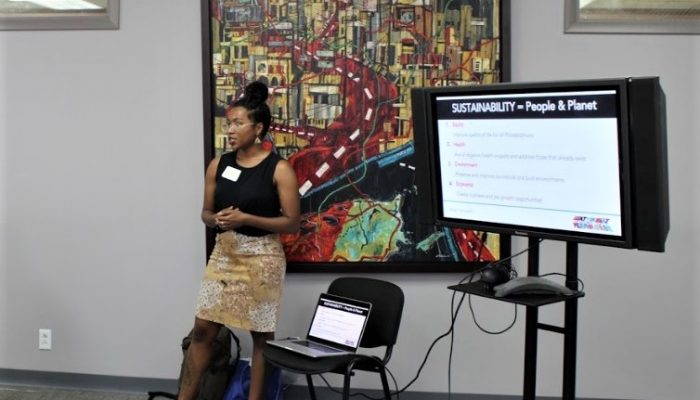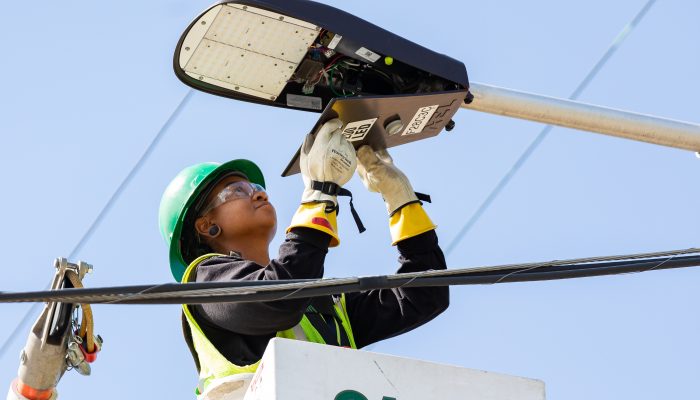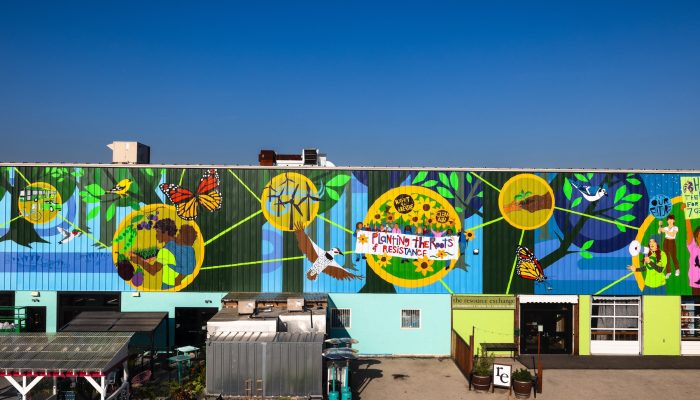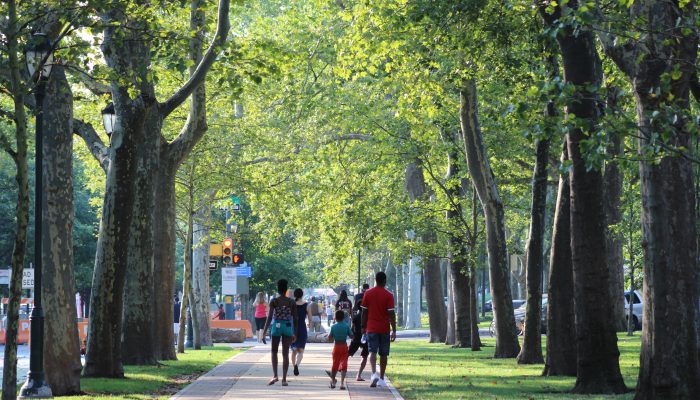Ciara Williams is the Outreach and Communications Coordinator for Philadelphia’s Office of Sustainability. She has a background in participatory action research and environmental justice organizing.
Q: How did you get introduced to this line of work?
A: Due to state budget cuts and a history of debt and school receivership, by 2011 my school-district had no money to pay its teachers. Without enough teachers there weren’t enough classes so many of us were not on track to graduate with the necessary requirements to enroll in higher education.
To better understand what was going on, I researched how schools were funded. The dense concentration of polluting industry in Chester, low home values, and low rates of homeownership contributed to inadequate school funding because the public school funding formula heavily relies on property taxes. Meaning, wealthier communities are already at an advantage when it comes to quality of schooling.
Digging even deeper, I questioned who had been included in the decision-making process to locate one of the countries largest trash incinerators in a small, low-income, predominantly Black community. Eventually, I uncovered a rich history of activism against the incinerator and knew I wanted to continue the legacy of that work.
Q: What is sustainability?
A: To me, sustainability comes down to who is making the decisions about what happens in a community and ultimately, whose voices and experiences shape our environments. Actions have intended and unintended consequences so its important to meaningfully include those who may be directly impacted. Meaningful inclusion in decision making reduces the possibility of harm and disproportionate burden.
At its best, sustainability transforms our relationships with our environments by creating alternative practices. Sustainability heals the natural environment, improves upon our built environments, and supports the health and wellbeing of our diverse communities.
Q: How do you define environment?
A: Our environment is everything! When thinking about the environment and sustainability, our approach must acknowledge that fact. Some folx have even described spaces as having “cultural environments”. This encourages us to think about the practices, traditions, and values that not only shape our built and natural environments but shape the people within those environments as well.
For example, I grew up flying model helicopters with my family. We were able to do this because we had access to a public park big and grassy enough to make an activity like that possible. Under different circumstances, our helicopter may have flown into the street or crashed onto asphalt. This experience would later bring me to wanting to learn about physics and aeronautics as a high school student.
Q: What factors shape one’s environment?
A: In addition to culture, I believe it’s important to know the history of a space. The same park I used to fly helicopters in once had a waterfall. Due to the history of deindustrialization, white flight, and racist lending practices, Chester’s now predominantly Black population does not have the public funds to maintain the park. Disinvestment in public spaces can transform amenities into problems pretty quickly. That is why the waterfall was eventually dismantled. Although the park can still be enjoyed; without adequate funding, past traditions like sledding, swimming, ice skating, and community gatherings in the park are not as common as they used to be.
Q: Why is it important to broaden the way we think about environment and sustainability?
A: When thinking about social justice and how to address issues faced in communities, I like to first look at the environment, the context in which all of these issues take place. Often, one will find that these issues relate to one another. I believe it’s important to understand the root cause of an issue—this process often starts with asking what a community looks like, what are the resources and opportunities available to its residents, and historically, what decisions, practices, and policies got us to where we are today.
Q: What are you looking forward to working on?
A: I am looking forward to learning more about the work taking place in and outside of City government. There are so many ways to advance towards a more sustainable Philadelphia and sometimes, people are doing so without even realizing! I am excited to continue to meet new people and to find new ways the Office of Sustainability can support and amply their work. Please reach out to Sustainability@Phila.gov if you’d like to get in touch!




